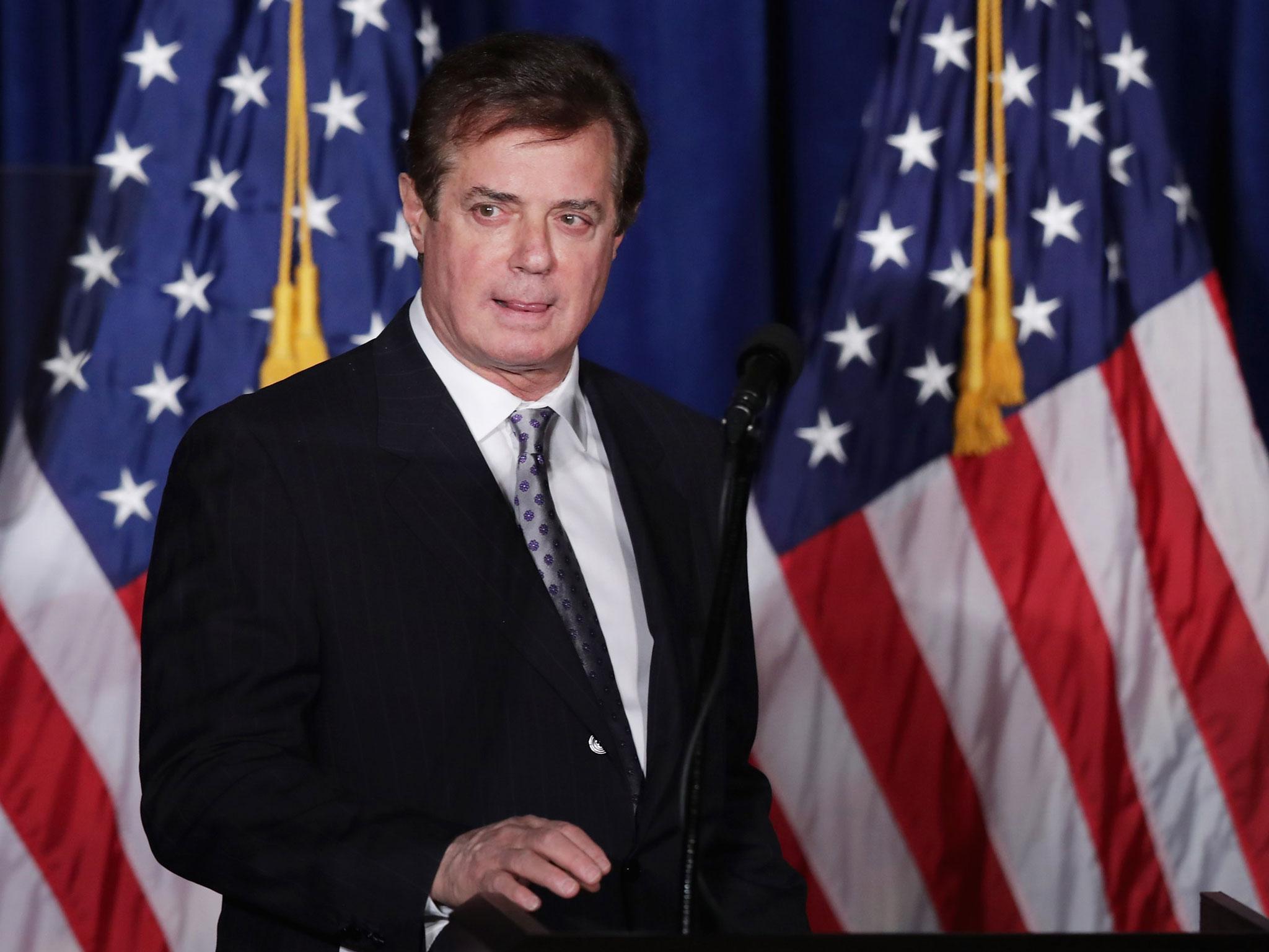Donald Trump campaign chief Paul Manafort secretly worked for Russian billionaire to 'benefit Putin government'
'My work for did not involve representing Russian political interests,' Mr Manafort says

Your support helps us to tell the story
From reproductive rights to climate change to Big Tech, The Independent is on the ground when the story is developing. Whether it's investigating the financials of Elon Musk's pro-Trump PAC or producing our latest documentary, 'The A Word', which shines a light on the American women fighting for reproductive rights, we know how important it is to parse out the facts from the messaging.
At such a critical moment in US history, we need reporters on the ground. Your donation allows us to keep sending journalists to speak to both sides of the story.
The Independent is trusted by Americans across the entire political spectrum. And unlike many other quality news outlets, we choose not to lock Americans out of our reporting and analysis with paywalls. We believe quality journalism should be available to everyone, paid for by those who can afford it.
Your support makes all the difference.Donald Trump’s former campaign chairman once secretly worked for a Russian billionaire to advance Vladimir Putin’s interests, leaked documents have claimed.
Paul Manafort allegedly proposed an ambitious political strategy to undermine anti-Russian opposition across former Soviet republics, despite claims from the Trump administration that he never worked in the Kremlin’s interests.
In 2005, Mr Manfort proposed a confidential strategy to influence politics, business and news coverage in the US and across Europe amid worsening relations between George W Bush’s government and Russia.
“We are now of the belief that this model can greatly benefit the Putin Government if employed at the correct levels with the appropriate commitment to success,” Mr Manafort reportedly wrote in a memo to Oleg Deripaska, a close ally of the Russian president and aluminium magnate.
He added that the effort “will be offering a great service that can re-focus, both internally and externally, the policies of the Putin government.”
Mr Manafort signed a $10m (£8m) annual contract with Mr Deripaska’s firm beginning in 2006, business records obtained by the Associated Press, and the pair reportedly maintained a business relationship until at least 2009.
American diplomatic cables from 2006 that were later released by WikiLeaks described Mr Deripaska’s “favourable relationship” with Mr Putin and said he was “more or less a permanent fixture on Putin's trips abroad and…among the 2-3 oligarchs Putin turns to on a regular basis”.
Mr Manafort worked as Mr Trump’s unpaid campaign chairman from March until August last year but was asked to resign amid claims he had orchestrated a covert Washington lobbying operation until 2014 on behalf of Ukraine's ruling pro-Russian political party.
He is now a leading focus of investigations by American intelligence services into links between Mr Trump’s associates and Russia, as well as a previous probe aiming to recover
Ukrainian assets stolen after the removal of pro-Russian President Viktor Yanukovych.
An FBI probe is running alongside two congressional investigations over whether the Trump campaign coordinated with Moscow to interfere in the 2016 campaign.
James Comey, the director of the FBI, declined to say whether Mr Manafort was a target when questioned in Congress, while his name was mentioned 28 times during a House Intelligence Committee hearing.
White House spokesman Sean Spicer said Mr Manafort “played a very limited role for a very limited amount of time” in the campaign, despite his leadership coming in the run-up to the crucial Republican National Convention.
Mr Manafort confirmed he worked for Mr Deripaska but told the Associated Press his rule was being unfairly cast as “inappropriate or nefarious” as part of a “smear campaign”.
“I worked with Oleg Deripaska almost a decade ago representing him on business and personal matters in countries where he had investments,” Mr Manafort said.
“My work for Mr Deripaska did not involve representing Russian political interests."
Additional reporting by AP